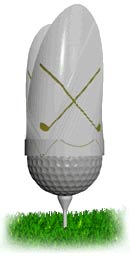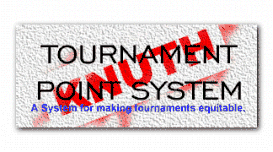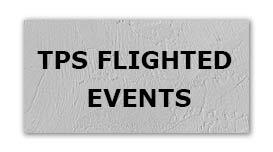|




|
What's a Sandbagger?
Nothing gets and keeps a golfer's juices flowing like talk of handicap abuse. Dean Knuth's reply to a question on beating one's handicap got to Golf Digest reader C.T. Brown.
Dear Editor:
I wish to take issue with Dean Knuth?s answer to the question concerning beating one?s handicap by 9 strokes. It would seem to be implying that a player having one of those rare good days when everything is clicking is guilty of something shady. I have a USGA handicap of 22 and was able to put together two of three rounds where I beat my handicap by good margins in our club championship. My normal game has me between 90 and 95 but on those rare occasions, I can find the low 80?s. That happens about two to three times a year. I think that Dean Knuth's suggestion to appeal to the handicap committee will tend to foster ill feelings in that club. Of course, if the petitioner was playing a tournament where they don?t have to present their Official USGA Handicap card at registration...well...we have all seen those events where ringers swoop in and take everything, then there really isn?t a functioning handicap committee to which one could appeal. I belong to two different clubs where the committees and the members all know what to expect from the participants in the tournaments and give a pat on the back to those who are blessed with one of those special rounds. C.T. Brown
Lakewood, NJ
Take issue all you like, C.T., but the Pope of Slope knows his stuff. Here's Dean's reply:
Sorry, Mr. Brown, but I don't agree with your argument
The philosophy of the USGA Handicap System is that every golfer can have one great round in a tournament, but to have TWO great rounds indicates that a player's potential is better than his handicap, which in itself is supposed to reflect a player's potential. That is why the USGA implemented Section 10-3 which identifies tournament scores with a "T". If a player beats his handicap by more than three strokes in two or more tournament rounds in a period of the last 12 months, his handicap is calculated by using those two T-scores (plus a correction factor), rather than using the player's best 10 of the last 20. You can check it out yourself at the USGA web site. Go to Handicaps and select the USGA Handicap System Manual.
As for fostering ill-feelings in a club, I disagree. Any club with an effective Handicap Committee that takes action on exceptional play is following Section 8 of the USGA Handicap System Manual, as it is required to do to be in compliance with that USGA System. My experience is that when Handicap Committees take action, the vast majority of club members are pleased and only the player whose handicap is reduced might be unhappy. Active Handicap Committees result in greater participation in club net events because members realize that they have a chance to place near the top occasionally, which is what the USGA Handicap System was meant to do.
In addition to the USGA Handicap System procedures, many clubs have also implemented the Knuth Tournament Point System which identifies players who win net events and assigns them points. Players that collect more than their fair share of points play at a reduced handicap in club events. For more information go to my web site : popeofslope.com . Dean Knuth
Each time we get into this, I lean more toward the international handicap systems that rely entirely on tournament scores, for two reasons: First, because otherwise some golfers will manipulate the system either by recording casual-round scores that are too high or, less frequently, too low. Second, because those who don't manipulate the system feel the need to count every single shot (even in match play, even when their score does not count on a given hole), which only slows play.
--Bob Carney
|




